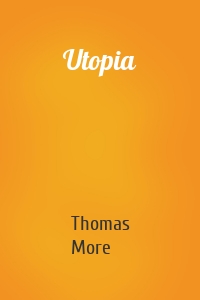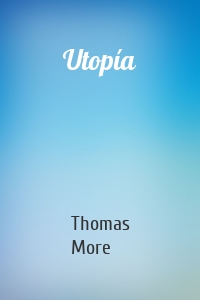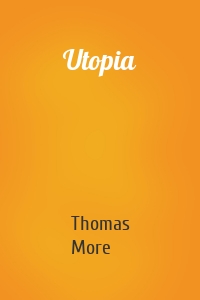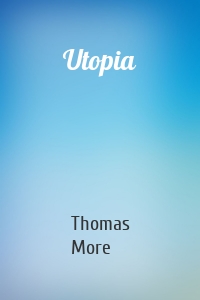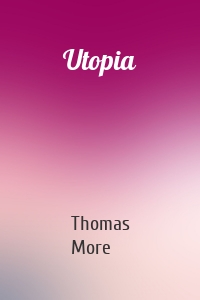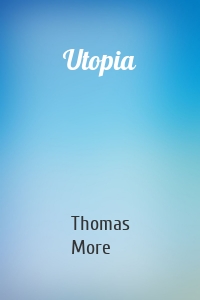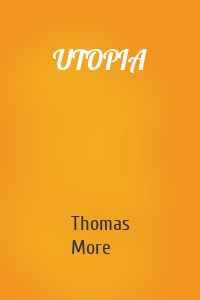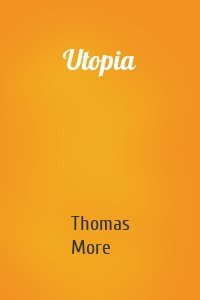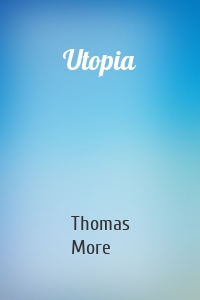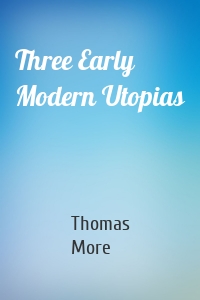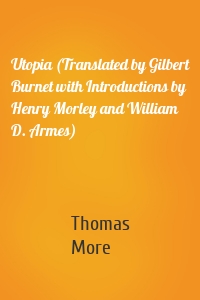Thomas More
11 кн.
Utopia
What we can learn from a Renaissance nowhere In 1516, a book was published in Latin with the enigmatic Greek-derived word as its title. Utopia—which could mean either “good-place” or “no-place”—gives a traveler’s account of a newly discovered island somewhere in the New World where the inhabitants enjoy a social order based purely on natural reason and justice. As the traveler describes the harmony, prosperity, and equality found there, a dramatic contrast is drawn between the ideal community...
| Автор | Thomas More |
Utopia
First published in Latin in 1516, Utopia was the work of Sir Thomas More (1477–1535), the brilliant humanist, scholar, and churchman executed by Henry VIII for his refusal to accept the king as the supreme head of the Church of England. In this work, which gave its name to the whole genre of books and movements hypothesizing an ideal society, More envisioned a patriarchal island kingdom that practiced religious tolerance, in which everybody worked, no one has more than his fellows, all...
| Автор | Thomas More |
Utopia
Thomas More's «Utopia» is one of the most influential books in western literature. Within «Utopia» is described an idealized island community upon which perfect social harmony has been achieved. On this island all property is community owned, violence is nonexistent and everyone has the opportunity to work and live in an environment of religious tolerance. Many social movements throughout history have drawn upon More's work for inspiration. While possibly unachievable Thomas...
| Автор | Thomas More |
UTOPIA
Utopia (Libellus vere aureus, nec minus salutaris quam festivus, de optimo rei publicae statu deque nova insula Utopia) is a work of fiction and political philosophy by Thomas More published in 1516 in Latin. The book is a frame narrative primarily depicting a fictional island society and its religious, social and political customs.
| Автор | Thomas More |
Utopia
Five-hundred-year anniversary edition of More’s Utopia, with writing from major science fiction writers Five hundred years since its first publication, Thomas More’s Utopia remains astonishingly radical and provocative. More imagines an island nation where thousands live in peace and harmony, men and women are both educated, and property is communal. In a text hovering between fantasy, satire, blueprint and game, More explores the theories and realities behind war, political conflicts, social...
| Автор | Thomas More |
Utopia
This vintage book contains Thomas Moore’s 1516 novel, “Utopia”. A fantastic work of political philosophy, it centres on a fictional island and its religions, culture, and politics – a model for an ideal political system. This book is highly recommended for fans of utopian fiction, and will be of special utility to students of philosophy. Sir Thomas Moore (1478–1535) was an English philosopher, lawyer, author, and noted Renaissance humanist, who opposed Henry VIII's marriage to Anne Boleyn....
| Автор | Thomas More |
Three Early Modern Utopias
While Thomas More first coined the word utopia in his 1516 book of the same name, the concept of a near perfect society dates at least back to the period of classical antiquity. Plato's «The Republic» is often cited as one of earliest attempts at addressing just such a society. However in the 16th century Thomas More's work established itself as the most famous example of this genre of literature. More's «Utopia» is described as an idealized island community upon which perfect...
| Автор | Thomas More |
Utopia (Translated by Gilbert Burne...
Thomas More, a 16th century English lawyer, statesman, and philosopher, was one of the most controversial figures of his time. More opposed the Protestant reformation and denied the King’s position as head of the Church of England. This act would ultimately lead to his trial for treason and execution. Despite his tragic downfall, he will forever be remembered for his pioneering work “Utopia.” Thomas More first coined the word utopia in his 1516 book of the same name. Although the concept of a...
| Автор | Thomas More |


